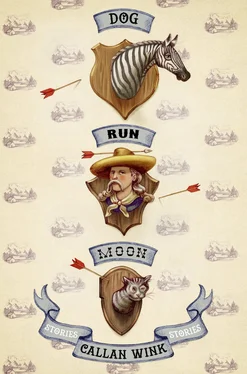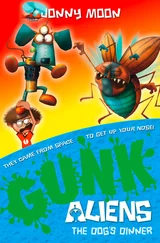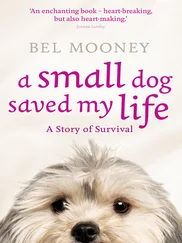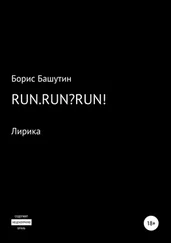When the pigs had been slopped and eggs gathered and feed tossed to the chickens, Lauren walked her property boundary. The wind came predominately from the east, and she stood leaning on a shovel imagining the way it would look. A border of trees, close planted so their branches intermingled into a net that would catch the wind and bring it to the ground. She could hear how it would sound, the wind screaming into the trees, the branches fringed with soft needles opening like welcoming arms, smothering, softening, subduing so she could stand on the leeward side, her hair barely tousled. She wanted the trees now. She wanted them ten years ago. To plant a tree one had to be fairly certain that one was going to be around long enough to eventually enjoy it. Otherwise, planting a tree was — what? A symbolic ritual? A gift to a future generation, one that probably wouldn’t give a damn about you in the first place? To hell with that. If Lauren was going to plant a tree, she was going to reap the benefits. After she was gone, the world could do what it wanted. She needed trees that grew fast.
—
The cattle got out again. Lauren was making herself and Elton John lunch and she saw a red rump walk by her kitchen window. She put down her sandwich and went out to scream and plead the cattle back into their enclosure. They’d broken through the fence, a different spot this time. One of her mismatched poles had just been pushed over. Probably, the animal had been scratching itself and unwittingly knocked it down. Still, she was worried about this. Two escapes in one week. The fence was flimsy, that was true, but it wasn’t the physical fence that kept the cattle in anyway, it was the idea of the fence. She had to wonder if maybe the cattle had come to believe less and less in the magic of the wire. She reseated the toppled post and stacked rocks around its base. The cattle watched her balefully. She tried to read their blank eyes for signs of insurgence.
—
She didn’t go speak to Jason. She was in a good mood and figured that they were hard enough to come by so she shouldn’t ruin it. That night, she heard coyotes howling down in the coulee. Elton John whined to go out early. It was still dark. She rose and opened the door for them. They filed out like normal and set to their routine sniffing of the yard. She went back to bed. When she woke several hours later to start her chores, Elton John weren’t at the door. They weren’t in the yard either. She never saw them again.
She blamed herself. She never should have let them out with coyotes around that close to the house. She blamed Jason, for shooting the steer that brought the damn coyotes in the first place. She blamed Manny for dying and leaving her alone. She called in sick for work and spent a morning driving all the back roads calling their name.
—
It was a full moon, fat as a tick stuck to midnight’s flank. The coyotes worshipped it faithfully. They made their home in the coulee for a week and she could hear the snapping and popping of their teeth. If she had owned a gun, she would have left the coulee littered with their corpses. If she had a gun, she would have gone down and shot Jason and his black dog. If she had a gun, maybe she would have sat down on her couch and never gotten up from it again.
—
Her refund check came. She ordered her trees, two dozen blue spruces, and spent a weekend with a pick and shovel digging holes. Two dozen pits, neatly spaced, with the piles of dirt and rock next to them, like little graves awaiting occupants. At night, she had long conversations with Jason during which she showed him the error of his ways in a multitude of devastatingly articulated reproaches. She didn’t go down there and actually face him though, and each day that passed it seemed less likely that she would.
—
The trees came. Much of her excitement was gone but she planted them carefully, tamping the loose dirt around the roots, sinking them deep so the wind wouldn’t blow them over. She spent a whole afternoon watering each one of them in turn, standing with the hose, looking out over the backs of her cattle, to the mountains that hunched white and silent over the valley. The trees were small. She had no idea they would be so expensive. To get the number she wanted she had to settle on spruces that were only slightly larger than seedlings. When planted, her shelterbelt, her brilliant idea, only came to just above her knees. The trees themselves seemed fragile. She wondered if she should have used her money in some other more responsible way. That one thousand dollars would have bought a lot of feed. She watched the trees pitch and blow with the wind, the strong gusts nearly laying them flat.
—
It was early summer now. Lauren watered the trees every morning before she left for work. She watered them again in the evening. They all seemed to have taken root just fine. She sometimes plucked a green needle from a tree and chewed it as she did her chores. She liked the taste of pine. It was astringent and clean. It seemed like she’d had a bad taste in her mouth for as long as she could remember.
It was just past dark when Lauren drove home from work. It was summer school now, which meant shorter hours. Fewer students meant fewer trash cans to empty, fewer toilet paper spools to refill. The night was warm and she had the windows down so she could smell the river and the cut hay in the fields. She was nearing her driveway when a huge, red-brown form filled her headlights. She braked and cursed, and the steer stood with its massive horns lowered, its eyes like rolling white marbles in the glare.
She honked her horn and shouted, waving one arm out the window, and the animal turned and ambled slowly down the road toward home. Lauren followed and saw other shadowed forms moving in the ditches. She could hear the cattle’s hoofs striking rocks and their occasional groans.
In her driveway, she turned her high beams on, the twin shafts of light stabbing out at the cattle milling around in the yard. When Lauren got out of the truck to assess the damage to the fence, she saw what had happened. Her trees. They lay in trampled wreckage, limbs splintered, thin trunks snapped off near ground level, the whole line of them violently trod to pieces under the churning hoofs of the escaped cattle. Lauren sat down, right there in the dust and manure of the cattle enclosure. She sat with her legs out in front of her and then even this was too much. The earth wanted her flat. She lay back with her arms spread, the headlights running parallel above her, white moths and dust motes swirling through them. She tried, very earnestly, with only a hint of self-pity, to remember the last time someone had said that they loved her.
2.
At age twenty, Lauren was fairly certain she would never be considered pretty. However, she had been told she was shapely, and she thought this was better than nothing. She liked to walk. Once she set out from the small apartment she rented in town and hiked along the frontage road and then up the trailhead to Livingston Peak and then up to the peak itself, scrambling the last hundred yards over loose, sliding scree as the sun set behind her. It was a one-way journey of some twenty miles. She’d brought a sleeping bag and a few granola bars. She found a declivity in the rocks out of the wind and looked out over the range stretching down and away to the south, dark and silent under the wash of stars. She hiked back home the next day after watching the sunrise.
She had boyfriends. She liked to dance. She could two-step and jitterbug and waltz a little. On Friday nights she’d go to the Longbranch and sit at the bar and drink soda water and twirl on the floor with anyone who would ask her until her feet hurt in her boots and the small of her back was damp from the hands of her partners.
Читать дальше












